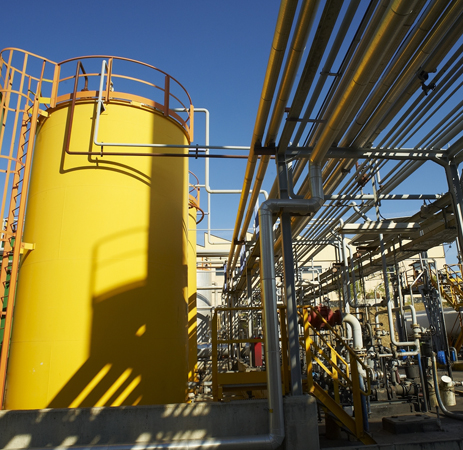49 cabecera noticia_AU como combustible
The Ministry of Agriculture and Fishing, Food and Environment regulates the requirements for the sale of used oil processed as fuel from 2020
On March 3rd, a new ministerial order came into force that establishes the criteria for determining when the used oil processed for use as fuel is no longer a waste product and can, therefore, be sold as a fuel product. This new regulation affects the used oil treatment facilities that, in Spain, process this waste for posterior use as fuel similar to fuel oil, which will have two years to adapt their facilities and authorisations to the new requirements which are more demanding with regards to heavy metals, chlorine and other contaminants.
16-03-2018

24 Párrafo Noticia AU como combustible
Making use of the authorisation provided by Law 22/2011, of 28th July, on waste and contaminated soils, the Ministry of Agriculture and Fishing, Food and Environment (MAPAMA) has regulated, through Order APM/205/2018, the “end of the condition of waste” for used oils processed as fuel, i.e., the requirements to be complied with by the used oils so as to no longer be considered waste and to be apt for commercialisation and use as a product, within the Spanish state.
The regulation has considered a study undertaken by MAPAMA on request from the waste coordination commission, which includes an analysis of the existing regulations, of the management of used oils in Spain, Europe and the United States and of the best techniques available in the processing of used industrial oils for use as fuel.
32 párrafo cita noticia AU como combustible
“
The order establishes that used oil processed for sale as fuel cannot contain more than 5 ppm (parts per million) of metal such as nickel, chromium, cadmium, lead, arsenic and others, less than 1 ppm of PCB and less than 50 ppm of halogenated organic compounds.
„
As fundamental requirements, the Order states which types of used oils can be subjected to said recovery process in order to obtain fuel, as well as the treatments required, including the reduction of water content (through centrifugation, dehydration, evaporation etc.), of the sediment content (through decanting, sedimentation, filtering, etc.) and thermal treatments aimed towards separating the fraction of fuel oil from the less desirable base fractions that include metals, ashes, heavy hydrocarbons and degradation compounds: distilling or thermal cracking.
In this sense, the order establishes that used oil resulting from said treatment cannot contain more than 5 ppm (parts per million) of metal such as nickel, chromium, cadmium, lead, arsenic and others, less than 1 ppm of PCB and less than 50 ppm of halogenated organic compounds, such as total chlorine. Furthermore, used oils sold as fuel must continue to comply, as at present, with the specifications of the regulations for fuels.
The used oils that do not comply with the new limits will continue to be considered as waste, and therefore cannot be commercialised as fuel. Also, the energy recovery centre must issue a declaration of conformity with each shipment of used oil processed as fuel, and apply a quality management system that is verified externally.
These requirements will be enforceable from March 2020 for facilities that, in the next four months, request renovation of their integrated environmental authorisation in accordance with this order. For facilities that do not request this revision, the requirements will be enforceable from July 3rd.
Together with the mentioned Order APM/205/2018, MAPAMA has issued Order APM/206/2018 with a practically identical content but a more specific scope, as it refers to the use on ships of fuel recovered from used oils in the MARPOL scope (waste included in the International Agreement to prevent pollution from ships).